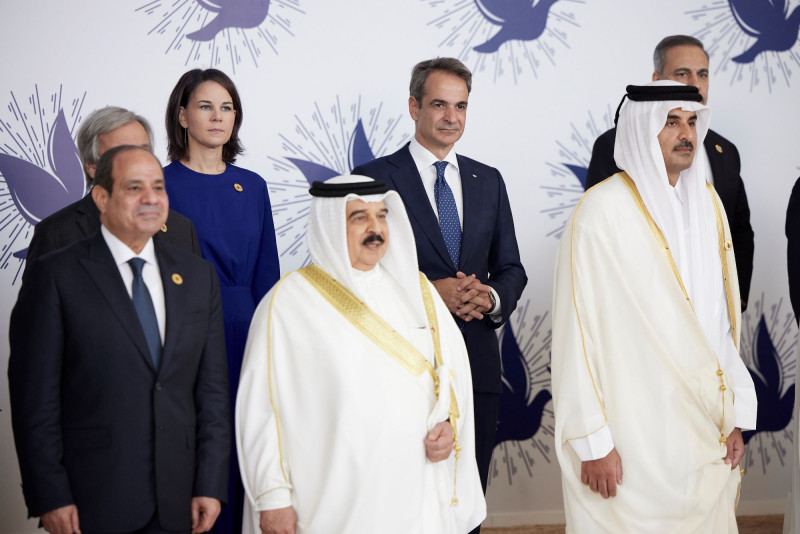“We will not leave, we will remain in our lands” said Mahmoud Abbas – The EU’s position and the concern about a new migration wave from Palestine
The Gaza Strip is at the center of attention at the Cairo conference in an attempt to prevent a wider regional conflict.
The Peace Summit has begun and is taking place as Israel prepares a ground invasion of Gaza, following a Hamas attack that killed 1,400 people.
Palestinian President Mahmoud Abbas said in his opening speech that “we will not leave, we will remain in our lands.”
More than 4,100 Palestinians have been killed by Israel’s counterattack, according to the Gaza Strip health ministry, as the humanitarian crisis escalates.
However, there are no high hopes for… peace.
The leaders and officials from the Middle East, the EU, Russia, China and Turkey that take part, it is expected that they will hardly reach an agreement on a common position, regarding the war between Israel and the Hamas armed forces.
Furthermore, the absence of a top US official – which is Israel’s main ally – but also other major Western leaders has lowered expectations from the conference, which was organized in haste.
For its part, Israel has announced that its goal is the extermination of Hamas and a new “security regime” in the Gaza Strip.
Two diplomats said it is unlikely to be a joint announcement due to the sensitive parameters surrounding the calls for a ceasefire, with hot issues, the reference to the attack by Hamas against Israel (October 7), but also the right of Israel to defend its territories.
For example, the King Abdullah of Jordan stated today in his opening speech at the Cairo Peace Conference, that forced or internal displacement of Palestinians could be a war crime.
The position of the EU and the concern about a new immigration wave from Palestine
The Vice-President of the Commission, Margaritis Schinas, will represent the Commission at today’s Cairo Summit for Peace on developments in the Middle East.
For the EU, the possibility that tens of thousands of Palestinian refugees who want to leave the war-torn Gaza Strip will cross the Rafah in Egypt will likely constitute a new migration “challenge”.
The meeting is also attended by the Greek Prime Minister, Kyriakos Mitsotakis, who in the recent emergency teleconference of the European Council on the situation in the Middle East pointed out Greece’s concern about the consequences that the expansion of the crisis would have at the regional level and underlined the need to coordinate the security services at European level.
Participants in the meeting include:
-Turkey’s Foreign Minister Hakan Fidan, who on the sidelines of the session will also have bilateral contacts
-Egyptian President Abdel Fattah al-Sisi
-Palestinian Authority President Mahmoud Abbas
-King Abdullah of Jordan
-King of Bahrain Hamad bin Isa Al Khalifa
-The Crown Prince of Kuwait, Sheikh Meshal Al Ahmad Al Sabah
-The Prime Minister of Italy Giorgia Meloni
-The Prime Minister of Spain, Pedro Sanchez
– The president of Cyprus, Nikos Christodoulidis
– South African President Cyril Ramaphosa
– Germany’s Foreign Minister Analena Berbock
-The Minister of Foreign Affairs of France Catherine Colonna.
-Japan’s Foreign Minister Yoko Kamikawa
– British Foreign Secretary James Cleverley
-The Deputy Minister of Foreign Affairs of Russia, Mikhail Bogdanov
– Norway’s Foreign Minister Espen Bart Eide
-China’s Middle East Special Envoy Zhai Jun
-The Secretary General of the United Nations Antonio Guterres
-The President of the European Council, Charles Michel
– The head of European diplomacy, Josep Borrell
Source :Skai
With a wealth of experience honed over 4+ years in journalism, I bring a seasoned voice to the world of news. Currently, I work as a freelance writer and editor, always seeking new opportunities to tell compelling stories in the field of world news.












